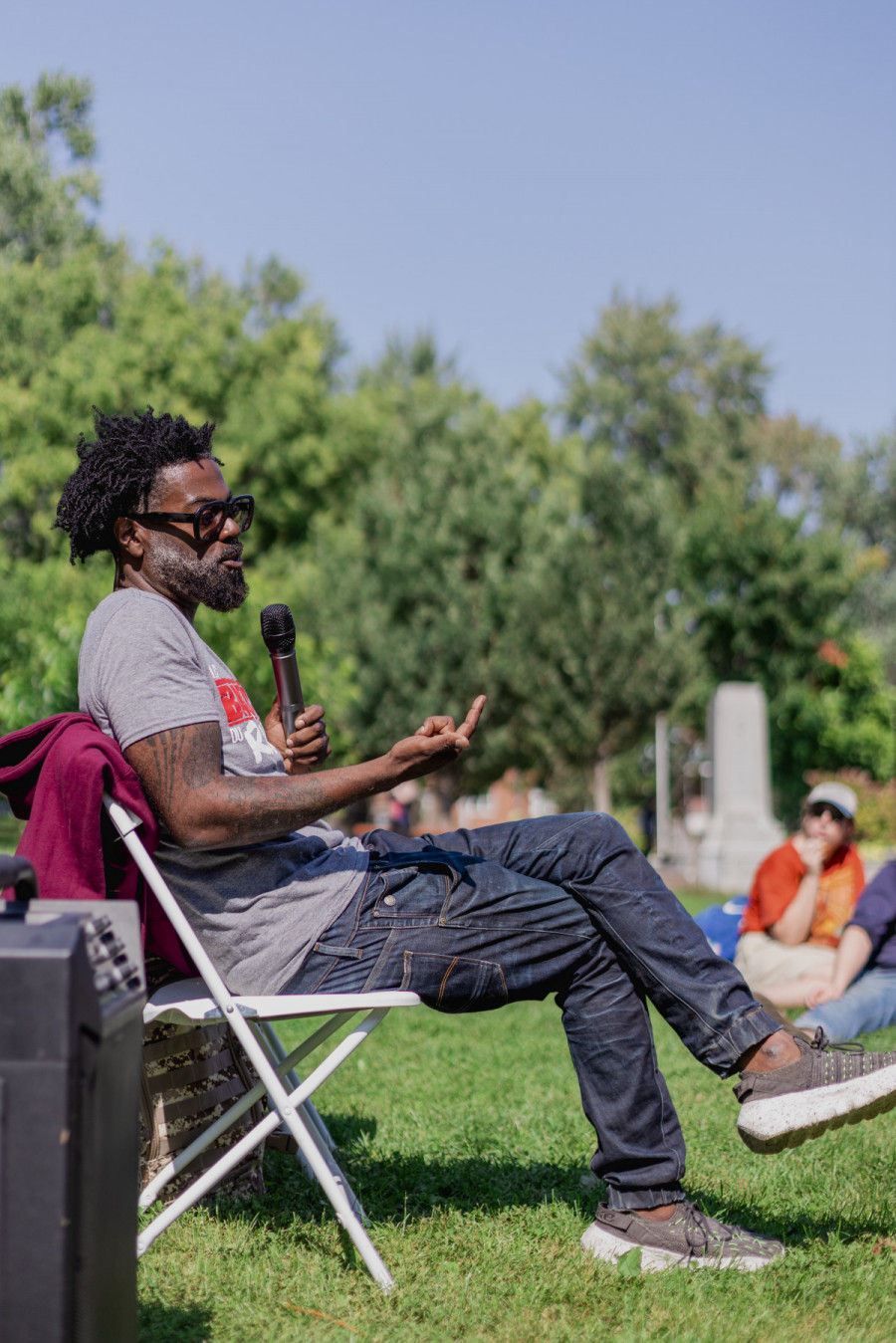Defund the Police Festival: A Safe Learning and Sharing Space
The Festival Hosted Ten Speakers Discussing the Reality of Policing in Montreal
Amelia arrived in Canada in 2013 after spending most of her life fighting against police brutality back in her home country of Tunisia.
When she sent her child to school in Montreal, Amelia did not expect her to come back with tales of students having to salute the police officers roaming the hallways. Amelia spoke of how the system she stood up against for so long was now forcing her child into submission behind the four walls of the school, far from her protection.
“Ever since we came here, her and I have attended every police brutality protest each time a member of our community was killed,” Amelia said. “She’s living a strong cognitive dissonance between what she hears from her community and what she learns in school.”
“[Her teacher] asked us to seek mental health support, because she talks too much about racism and police brutality.” — Amelia
On the sizzling hot evening of Sept. 10, in a corner of Notre-Dame-de-Grâce park, over 200 people had their gazes locked on Amelia as she shared her story. She wasn’t a speaker, but an audience member of the École Sans Police organization panel.
There was one instance where the police went into the classroom of Amelia's daughter to give a training session. Her daughter questioned her teacher as to why they were teaching them things, as police officers.
“I received a call from the instructor later, questioning me on my daughter’s anti-police sentiment,” she said, followed with audible shock from the people surrounding her. “She even asked us to seek mental health support, because she talks too much about racism and police brutality.”
The Defund the Police festival, organized by the Quebec Public Interest Research Group and the Defund the Police Coalition, welcomed many people like Amelia, who have had a front row seat to police officers exploiting their power. The speakers and organizations in attendance shared their efforts to combat the abuse.
The topics covered included the police’s impact on hate crimes, sex work, drug decriminalization, gentrification, gun violence and schools. Taking the form of workshops, the speakers openly interacted with their audience and vice-versa, creating opportunities for conversations and story-sharing.
“That was a thing. An insured thing. It broke my heart to understand that they can justify saving a thing over me, in that moment.” — Renzel Dashington
Among those invited was Renzel Dashington, a born and raised Montrealer involved in the entertainment industry for 25 years. His talk was a comedy show titled Police Doesn’t Come Where I Live. It was inspired by his experience living around Montreal, being stopped numerous times in the East End and seeing a lot more police downtown.
“Once I moved to Lachine, I saw them once day and thought about how something must’ve happened. [...] I realized in that moment that the police only [come] in my neighbourhood when they’re called,” he said.
Dashington has had several talks in the past about defunding the police and on the Black Lives Matter movement. He has great faith in the power of education when it comes to getting the police force to restructure. “Police are plumbers, not engineers,” he said.
One of Dashington’s goals is for the right of every Black person to be normal, to not have to go above and beyond for the same rights and protections as everybody else, he said.
A few years back, Dashington’s faulty car key caused the vehicle’s alarm to go off, and once he returned from getting the right key from his apartment, the police were there.
“I’m telling them that this is my car. […] I have my keys in my hand, showing them. One of the guys said ‘we just told you, there’s two guns pointed at you, move one more time and we shoot you.’ They would’ve killed me over my own car.” He paused for a moment. “That was a thing. An insured thing. It broke my heart to understand that they can justify saving a thing over me, in that moment.”
His numerous encounters with police left Dashington with post traumatic stress disorder. He now avoids driving as much as possible

When organizing the festival, the committee behind it all wanted to make sure that it wasn’t depicted as a protest online, but a safe space for people to share difficult stories, as well as learning about what people can do individually to help combat the police’s abuse of power.
“Those who don’t feel comfortable speaking out in a street demonstration are welcome here to discuss with like-minded people,” said Jay S.C., a contributor in the organizing committee.
For Lacey Boudreau, another contributor for the committee, the festival was also an opportunity for those who haven’t had the chance to learn about the reality of the police as minorities.
“Some people are intimidated by concepts like defunding because they feel like they don’t know enough, […] it’s why I find it important to have a space like this, so they have somewhere to start,” Boudreau said.
Amelia requested anonymity following the publication of this piece. The Link granted her request and this article has been modified to reflect that.
This article originally appeared in Volume 43, Issue 2, published September 13, 2022.







_600_375_90_s_c1.jpg)